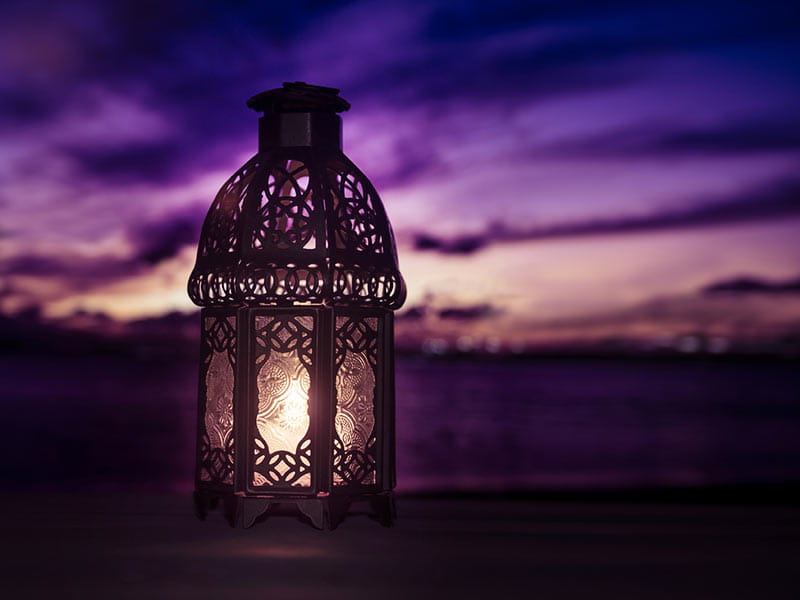Physical hunger was only a part of this new experience. For a while, I found myself like an armadillo out of its shell: unprotected, emotionally naked, and vulnerable. The spiritual dimension of the fast far exceeded any expectations I had. I experienced a new sensitivity and tenderness. People I knew who were going through the same experience reported similar feelings.
The first year was the hardest. I needed to unload a lot of emotional refuse. In a conversation with a friend who had recently stopped drinking alcohol, I could see certain similarities. Alcoholics are often said to be self-medicating. When the numbing effects of habitual drinking are withdrawn, a whole range of repressed emotional experience surfaces. Could it be, I wondered, that food could have a numbing effect? Don't people also consume food to cover insecurities and anxieties?
Might it be that the fast of Ramadan was pulling back the numbing veil of our habitual consumption, exposing to us what lies beneath?
If this proved true, then fasting is like going cold turkey. Furthermore, fasting once a year would become the opportunity to process a lot of undigested emotions, thus purifying the heart.
After all, the Prophet Muhammad said, "Excessive food numbs the heart."
When we fast, we expose ourselves to our own emotional state--and become more vulnerable and honest with ourselves. Ramadan, then, contributes to overall psychological health.
"Fasting is the bread of the prophets, the morsel of the saints," a teacher of mine used to say.
Fasting is meditation of the body, just as meditation is fasting of the mind. Fasting helps the body purify itself of the toxins that accumulate through the impurities of food and incomplete digestion. Fasting, as long as it is not excessive, is based on a positive relationship with the body, for it eases the body's burdens. Indulgence-whether in food, intoxicants, or pleasures-is a form of cruelty toward the body because of the price the body must pay for our so-called pleasures.
Purification leaves the body, especially the nervous system, in a more responsive state. Hunger reduces the need for sleep and increases wakefulness.
Fasting has been a catalyst for awakening in all sacred traditions. The great Sufi poet Rumi, for instance, reminds us: "What sweetness is hidden in the stomach's emptiness. We are like lutes, no less. If the sound-box is stuffed full, no resonance. If the brain and the belly are burning clean with fasting, every moment a new melody emerges from the fire."
Over time, I came to understand the gifts of the month of Ramadan. And I have also learned something about these gifts from friends.
In a gathering of American Muslims, I once posed the question, "What have you learned from fasting?"
A father of three said, "Fasting develops my conscience because I fast in secret as well as in public."
"During Ramadan, I feel transparent. My mind is clearer to reflect, my body feels light," an artist told me.
"It helps me to listen to something deeper. I discovered that there is an inner governing power within me. I have come to value listening to that, as difficult as it sometimes is," an investment analyst remarked.
A journalist said, "It teaches patience and unselfishness. In patiently enduring a deprivation, we become sensitized to the suffering of others and are therefore able to hear their need."
The essence of sacrifice (from the Latin "to make holy") is to give up, to put out of the present moment something good--and so to energize our love of God, to awaken the possibility of being more in touch with a spiritual reality.
Each year, I sense the Ramadan train approaching, and I realize it is once again time to take a ride. When I get on board, I find myself in the best company and well provided for.
I pass the night with my Lord: He gives me food and drink. Hunger is God's food whereby He revives the bodies of the sincere ones (siddiqs). In hunger God's nourishment reaches them.
--The Prophet Muhammad [Peace and Blessings Upon Him]

